
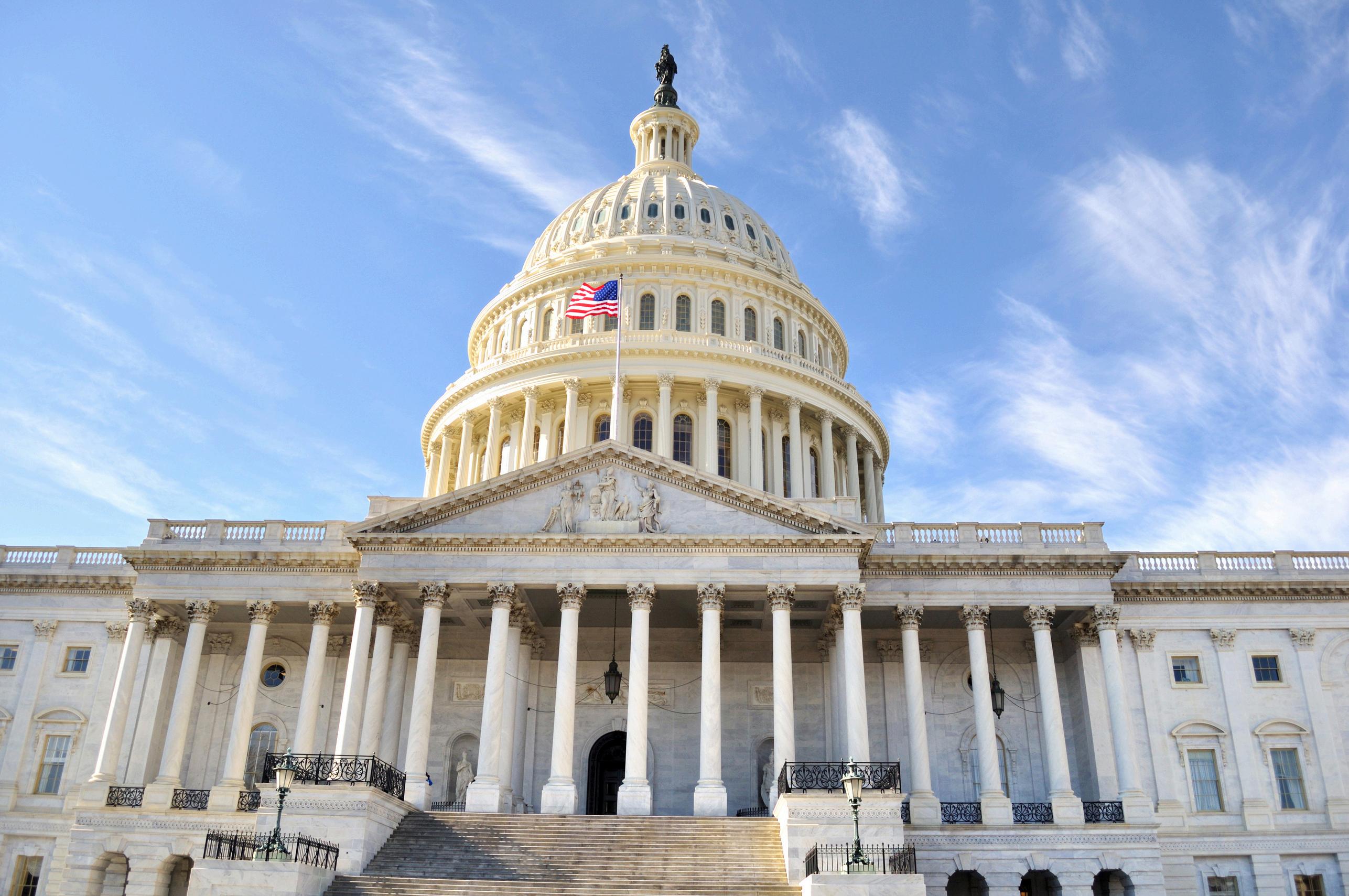
N e x t C e n t u r y C i t i e s
N e x t C e n t u r y C i t i e s
W r i t i n g B r o a d b a n d ’ s N e x t C h a p t e r T o g e t h e r
TheReturnof BipartisanTech
Local leaders, advocates, and federal officials convened in Washington, DC for the hallmark conference in celebration of NCC’s 10th anniversary.
May2024
Take a Look Inside Bipartisan Tech 2024 Andy Stutzman, Executive Director LOOKING AHEAD TO THE NEXT DECADE OF NCC 01 Ryan Johnston, Senior Counsel - Federal Affairs THE FUTURE OF INTERNET FOR ALL 03 Corian Zacher, Senior Policy Counsel - State and Local Affairs LOCAL LEADERS CONVENE AND COLLABORATE IN WASHINGTON, D.C. FOR BIPARTISAN TECH 05 Stacey Baxter, Program Manager THE ART OF STORYTELLING IN CLOSING THE DIGITAL DIVIDE 07 Brittany-Rae G. Rivers, Communications Director RESEARCH IS A CRITICAL COMPONENT FOR ADDRESSING DIGITAL DISPARITIES 10 SCENES FROM BIPARTISAN TECH 2024 12

TEN YEARS OF NEXT CENTURY CITIES: WRITING BROADBAND’S NEXT CHAPTER TOGETHER
When you have been working in broadband advocacy and digital equity for as long as I have, emceeing a conference like Bipartisan Techis somewhat of an ethereal, out-of-body experience. Seeing people and organizations from all corners of the advocacy world come together in the same space is not something that I take for granted. For myself, this year’s conference reaffirmed why I do the work and why Next Century Cities has been a critical part of the broadband story for the past ten years. Bipartisan Tech 2024 was a beautiful culmination of federal policy professionals, public interest groups, and local practitioners from across the country.
Next Century Cities has a legacy of uplifting local communities through advocacy and partnership. During Bipartisan Tech, we curated panels with local advocates and elected officials as well as federal leaders Those discussions provided a feedback loop that is integral to the work we do everyday. With over 220 member municipalities, it’s not just about providing them resources and guidance. Our job is also to create opportunities for members to interact directly with policymakers so they understand the variance in how policy is played out at the local level across multiple states. Members from Maryland, Washington, Kentucky, and Ohio were given the opportunity to speak with policy staff in their congressional offices during our pre-conference Day on Capitol Hill.
Next Century Cities 01
Andy Stutzman
The Bipartisan Tech conference also allowed for our members to confer, commiserate, and problem solve around issues that affect them all. Member municipalities have expressed a desire to meet with communities dealing with similar permitting issues, public/private partnerships, and digital equity planning. As the song Glad I’m not Alone states, “I’m sorry that you understand, but I’m glad I’m not alone.” The conference provided the opportunity for local leaders to connect in community around the issues that matter most. Fostering these connections serves as a conduit for innovative ideas and thought partnerships. You are not alone!
That is what is unique about Next Century Cities - we connect leaders while providing them with a platform to make their voices heard. We are proud of the robust membership and genuine connections that have formed over the last ten years and we look forward to the continued connectivity (no pun intended) that will happen as we embark upon the second decade of service.
Bipartisan Tech 2024 was such a phenomenal success because of the intentional choice to center public interest groups, federal leaders from the Federal Communications Commission and National Telecommunications and Information Administration, and municipal leaders Advocates from all sectors came together to help write the story of equitable, affordable broadband access and digital equity across America. I hope attendees were inspired to continue the fight as we work together to write broadband’s next chapter.
Andy Stutzman
Executive Director
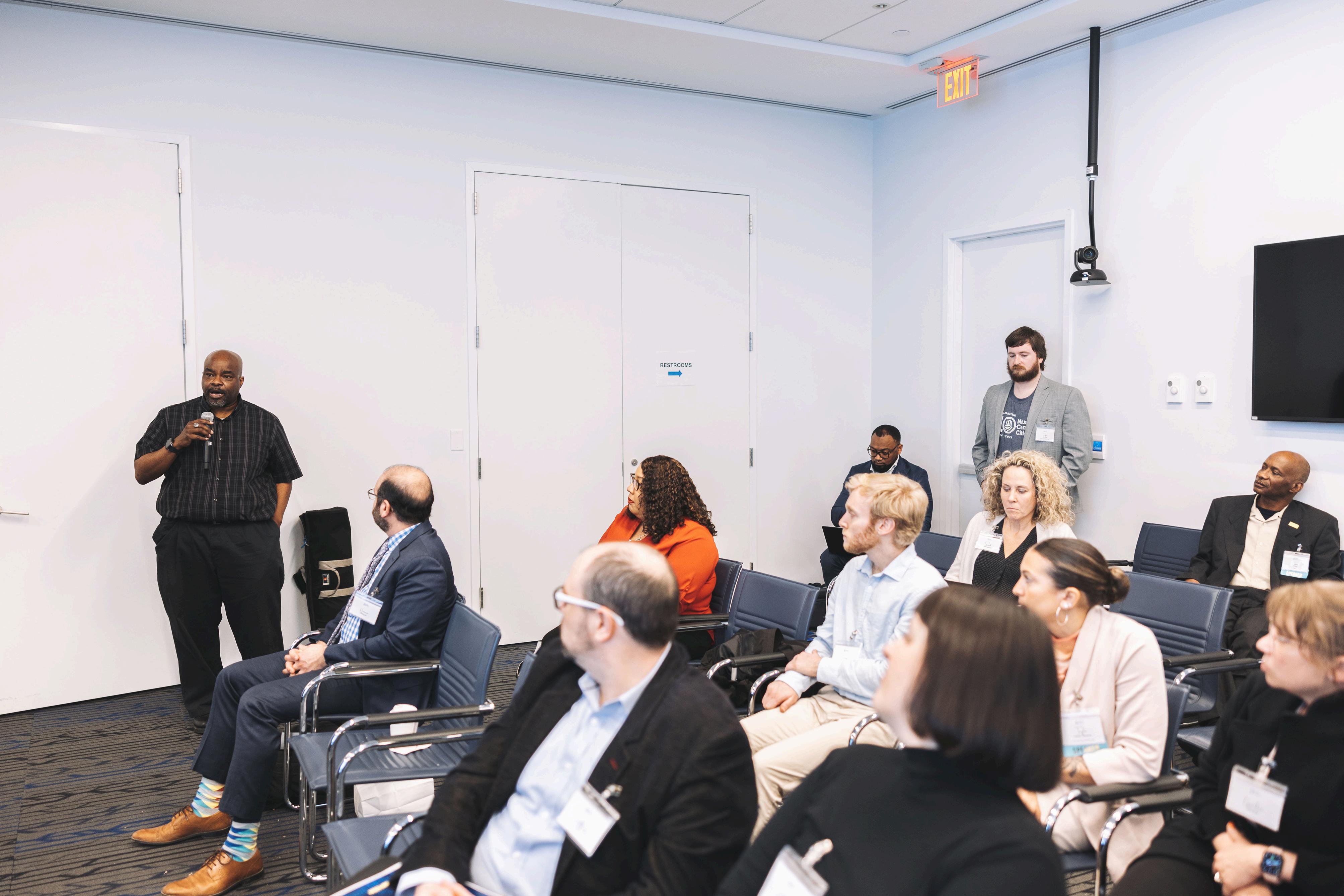
02
Next Century Cities

THE FUTURE OF INTERNET FOR ALL
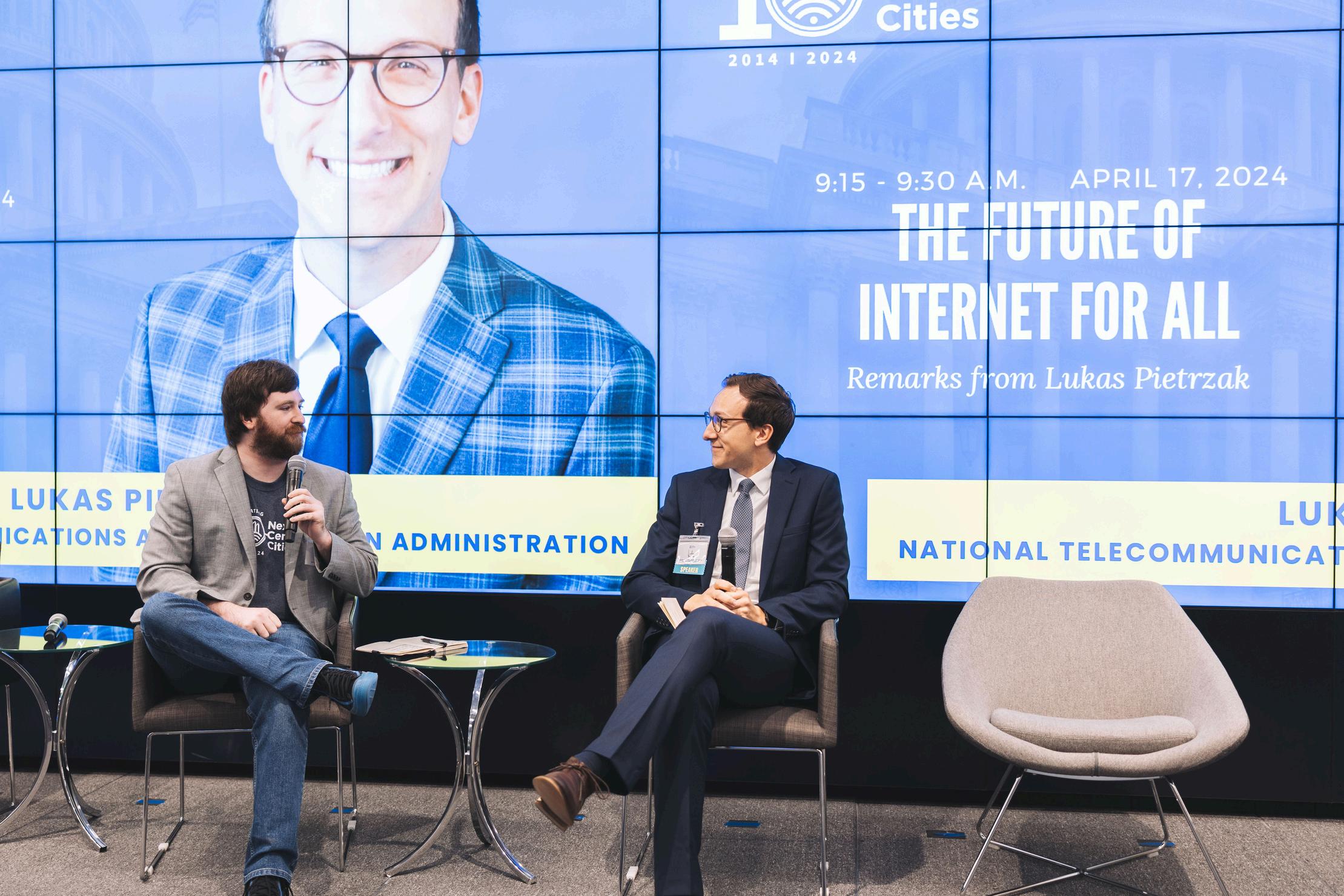
Bipartisan Tech is always a tremendous opportunity to bring officials from the federal government to give insights to local leaders about what’s happening in Washington D.C. Next Century Cities has hosted iterations of this hallmark event before. The previousBipartisan Tech was held virtually and we were excited to resume the in-person Bipartisan Tech in the nation’s capital This year Next Century Cities hosted officials from both the National Telecommunications and Information Administration (“NTIA”) and Federal Communications Commission (“FCC”). The day began with a short Question and Answer session with former Next Century Cities Program Manager and current NTIA Special Policy Advisor for Broadband, Lukas Pietrzak. Lukas provided updates on the timeline for the Broadband Equity Access and Deployment (“BEAD”) program. He explained that, at the time, almost all states’ Volume I proposals had been approved and the NTIA had moved on to reviewing many of the submitted Volume II proposals.
03 Next Century Cities
The FCC’s Alejandro Roark and Hayley Steffen with AARP’s Coralette Hannon, who is also an NCC Board Member
NTIA‘s Lukas Pietrzak with NCC’s Ryan Johnston
After lunch, Alejandro Roark, Chief of the Federal Communications Commission’s Consumer and Governmental Affairs Bureau, and Hayley Steffen, Federal Communications Commissioner Anna Gomez’s Legal Advisor for Wireline and Space joined Coralette Hannon, AARP’s Director of Livable Communities to discuss ongoing Commission efforts and how communities can engage with the agency’s work. Hayley highlighted Commissioner Gomez’s priorities and how the Commissioner is focused on vital consumer protections such as the Consumer Broadband Nutrition Label and recently approved Net Neutrality order. Similarly, Alejandro gave a brief explanation of the work his bureau is currently engaged in and how communities can reach his governmental affairs and outreach team to ensure that the FCC is consistently aware of what is happening on the ground and how they should address community concerns.
All three of our federal speakers shared an eagerness to work in partnership with communities, and urged all in attendance to share their stories, concerns, questions, and successes with them. In doing so, federal officials can tap directly into the incredible work that is happening in communities nationwide.
Ryan Johnston
Senior Policy Counsel, Federal Affairs



04
Next Century Cities
LOCAL LEADERS CONVENE AND COLLABORATE IN WASHINGTON, D.C. FOR BIPARTISAN TECH
Last month, Next Century Cities convened in DC, hosting Bipartisan Tech in-person for the first time since 2020. Local officials and community organizers from Texas, Colorado, Ohio, Kansas, Maryland, and Kentucky joined NCC for a two-day Bipartisan Tech event that included a day on Capitol Hill and a policy conference at the National Association of Counties.
The Future of Civic Technology
Khotan Harmon, Sr Program Manager for Telecommunications and Regulatory Affairs for the City of Austin, Texas, moderated a keynote panel on Building the Future of Equitable Technology, where local leaders from Louisville, Kentucky, and Baltimore, Maryland, joined advocates from Public Knowledge and the Open Technology Institute Panelists agreed that forward thinking about emerging technologies requires local leaders to think three to five years ahead.
Taylor Carter-Disanto, Deputy Director of Broadband and Digital Equity, City of Baltimore, Maryland, explained that from a city government’s perspective: “you can’t just adopt technology for the sake of adopting technology. You’ve got to lay out what that purpose is and what you hope to gain from implementing it ”
Ricky Santiago, Digital Inclusion Manager for Louisville, Kentucky, explained that instead of responding after technologies are deployed, local government leaders working on innovative city planning need to deploy offensive strategies for emerging technology.
Read more in Government Technology’s article about the panel AVs May Not Have Taken Over, but Their Tech Is Here to Stay.
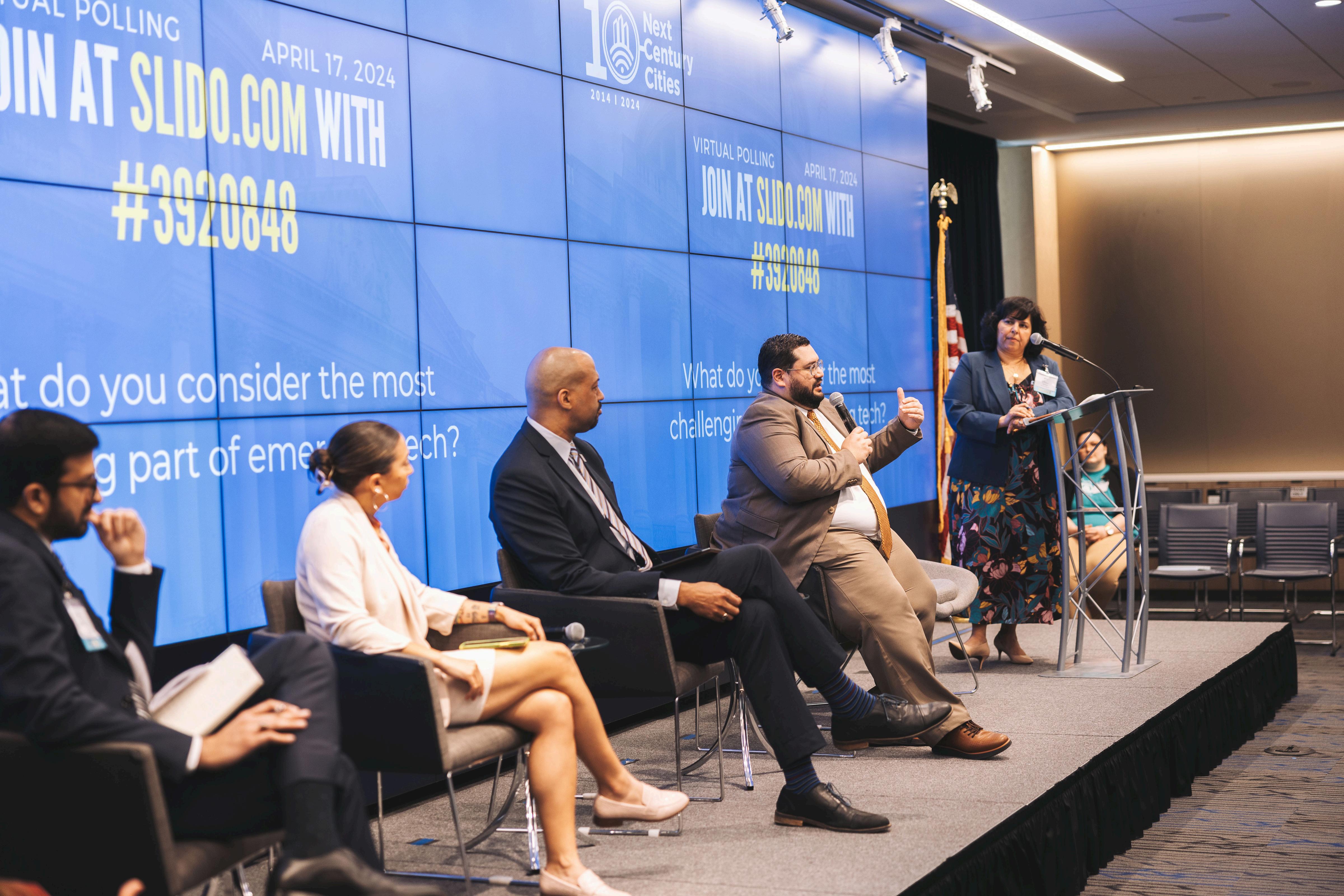
05
Next Century Cities


A panel moderated by Jake Varn, Associate Manager of the Broadband Access Initiative for the Pew Charitable Trusts focused on how the City of Fort Collins, Colorado, and nonprofit organization, IBSA, based in Kansas, are preparing for upcoming funding opportunities. Panelists agreed that community-centered strategies are essential for long-term affordability plans.
Lazone Grays, President & CEO of IBSA, explained the strategy that he and nonprofit allies used to encourage the State of Kansas to include digital equity in its American Rescue Plan Act (ARPA) funding plans. Along with $83.5 million for Broadband Infrastructure from the ARPA Capital Projects Fund, Kansas was one of seven states to receive for Digital Connectivity Technology and one of 24 states and territories to receive funding for Multi-Purpose Community Facilities.
Chad Crager, Broadband Executive Director for the City of Fort Collins, Colorado, elevated the importance of building City-County partnerships to make the most of the federal government’s historic investment in broadband infrastructure and digital equity. Along with providing 19,000 customers in Fort Collins with affordable fiber-to-the-home service, the City is now looking to bridge the digital divide between urban and rural residents in Larimer County through partnerships with neighboring communities.
Next Century Cities Board Member, Rondella Hawkins, retired earlier this year after 30 years of public service for the City of Austin, Texas Rondella has been a driving force for digital inclusion in the city, responsible for implementing the City’s Digital Inclusion Strategic Plan to ensure that all Austin residents have the broadband they need to participate in society among other critical connectivity initiatives. Likewise, Rondella has shared her expertise with neighboring local leaders in Texas and with NCC’s nationwide network The NCC team was delighted to celebrate with Rondella at Bipartisan Tech and looks forward to continuing collaborations in the next phase of her career.
Corian Zacher Senior Policy Counsel, State and Local Affairs
06 Next Century Cities
Planning Today for Success Tomorrow
Honoring a Legacy
Lazone Grays. Chad Crager and Jake Varn
Rondella Hawkins
THE ART OF STORYTELLING IN CLOSING THE DIGITAL DIVIDE

Next Century Cities hosts the annual Bipartisan Tech conference to bring together local leaders and advocates in broadband access and adoption. This year, the annual event brought back in-person collaboration as attendees from across the country joined together in Washington, DC for a day centered around equity, access, and partnership.
The overarching theme of this year’s conference was the importance of storytelling and its unique impact on closing the digital divide through legislative change. The afternoon panel paid direct homage to prioritizing the role that storytelling has in closing the digital divide with specialized advice from three field experts in crafting the art of storytellingRevati Prasad and Drew Garner from the Benton Institute for Broadband & Society and Nat Purser from Public Knowledge.
Next Century Cities 07
Drew Garner, Revati Prasad and Nat Purser
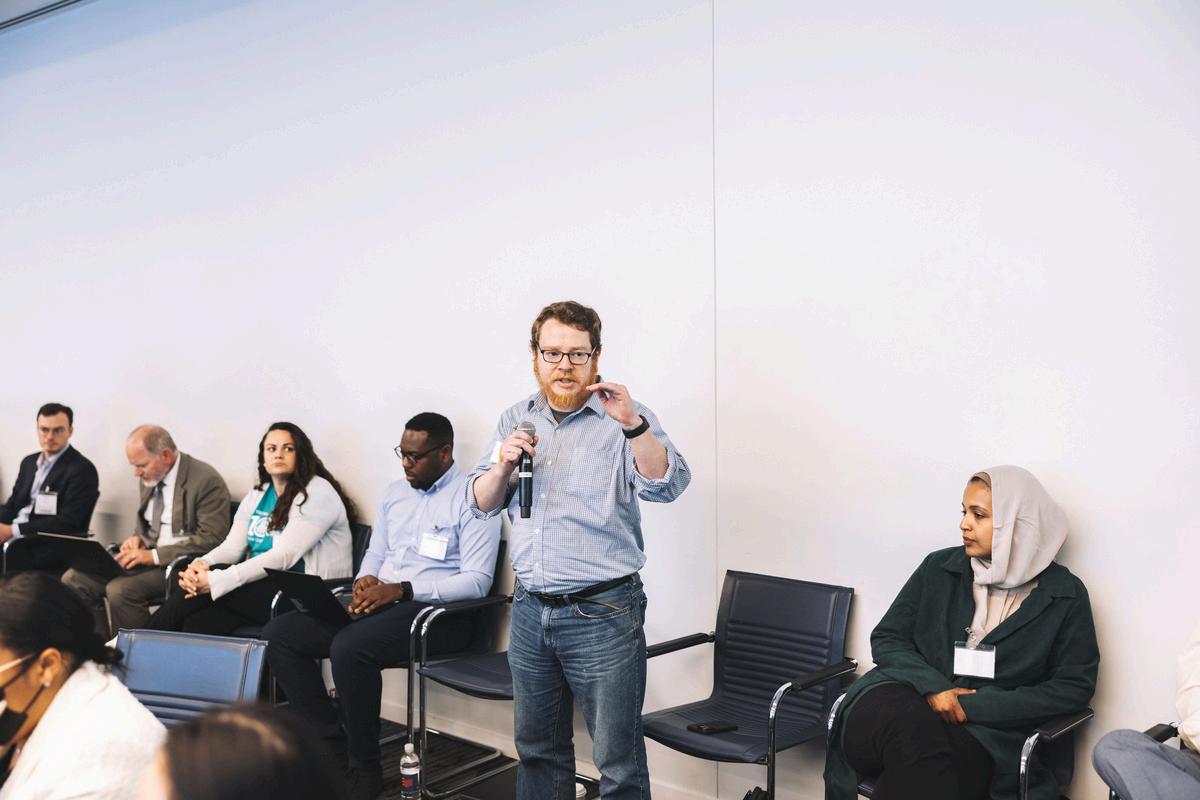
“STORYTELLING IS A CO-CREATION OF VOICES THAT CAPTURE A DEEPER LEVEL OF UNDERSTANDING THAN STATE PLANS CAN OUTLINE. IT IS A FORM OF QUALITATIVE DATA THAT IS INCREDIBLY VALUABLE IN INFORMING LAWMAKERS ABOUT ISSUES THAT ARE CONTRIBUTING TO THE DIGITAL DIVIDE. UNLIKE QUANTITATIVE DATA, THIS FORM OF DATA ELICITS HUMAN CONNECTION AND HAS AN IMPACT ON DECISIONMAKING.”
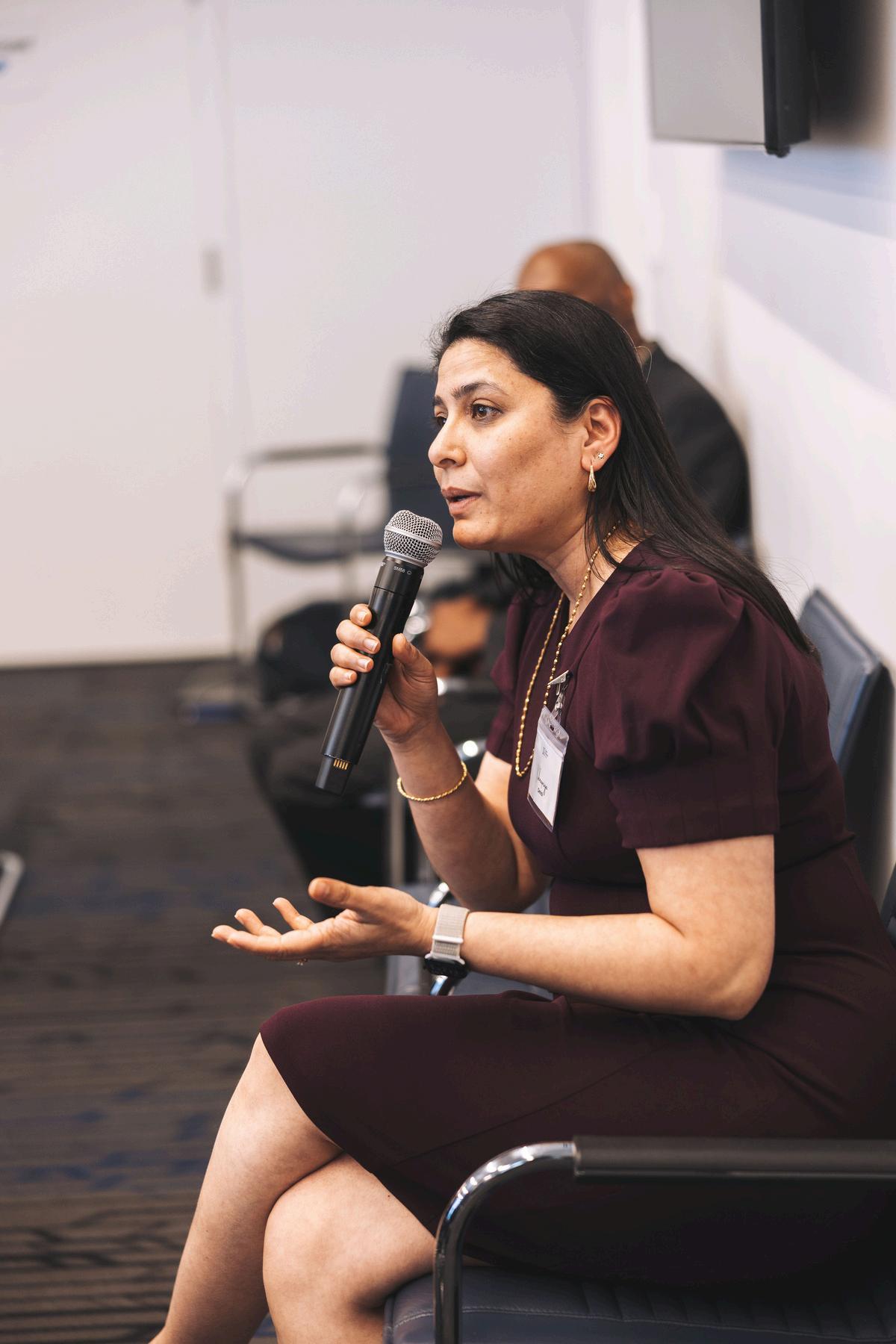
Revati launched the conversation by distinguishing between digital equity plans and the impact of storytelling. Storytelling, she explained, is a co-creation of voices that capture a deeper level of understanding than state plans can outline It is a form of qualitative data that is incredibly valuable in informing lawmakers about issues that are contributing to the digital divide. Unlike quantitative data, this form of data elicits human connection and has an impact on decision-making. Nat Purser used her expertise to share how storytelling compliments the work of advocates on The Hill, like herself. Nat used the term “collaborative storytelling” to share about the symbiotic relationship between community advocates, digital navigators, and Hill lobbyists. The stories that are shared by community advocates of individuals’ struggles to maintain broadband service are taken to lawmakers to highlight the need for legislative change, for example around continued funding for the Affordable Connectivity Program (“ACP”)
Drew Garner brought the discussion full circle by sharing storytelling strategies and best practices for engaging lawmakers with collected stories Drew gave the following suggestions for allowing data to be a form of storytelling, for both quantitative and qualitative findings.
Quantitative Data
Understandable content
Accessible data
Timely and up-to-date
Qualitative Data
Emotionally resonant
Relevant subjects
Quotes and pictures
Localized Maintain connection with community members
Boil information down to a memorable nugget
08 Next Century Cities

Something that distinguished the storytelling panel from those earlier in the day was the invitation for conference attendees to take the microphone and practice sharing impactful stories. Several local advocates embraced the opportunity to share what they had learned and tell a story that could impact lawmakers.
One of the most influential stories came from William Honablew Jr., the Digital Equity Coordinator from the City of Baltimore. William told a story about a woman who he met at a ACP registration event in collaboration with the public housing authority It is a part of their best practices that they do not make assumptions about the needs of the community, so when asking individuals “What do you need?”, “How is the digital divide affecting you?” William heard about how a stroke completely changed a woman’s life, making it almost impossible for her to use her cell phone and creating an Internetdependent atmosphere due to her medicallynecessary home devices. William set her up with a stylus pen and this small functional solution allowed her to use her cell phone independently, and was able to help register her for the ACP subsidy. Maintaining Internet access very truthfully sustains her quality of life post-stroke. Human life is too important to allow the ACP to lapse.
The digital divide affects more than just Internet access. In today’s society, not having access to the Internet can literally be a life or death situation. It is imperative that lawmakers understand the gravity of their decisions and have a true understanding of the realities that Americans are facing when it comes to affordable and reliable broadband access. And there is no better way to share these realities than through the art of storytelling
Stacey Baxter Program Manager
Next Century Cities 09
In the academic realm, research is the foundation for identifying solutions to some of society’s biggest challenges. Centering lived experiences is at the heart of the work that we do at Next Century Cities, so we know that In research should also be prioritized to address the daily access and adoption concerns that exist within the broadband advocacy and policy arena.
During Bipartisan Tech, we provided space to explore current research and future research opportunities during five end of the day roundtable discussions. Attendees were able to discuss timely topics, offer resources to each other, suggest collaborations, and discuss concrete efforts to help address challenges within their respective communities.
RESEARCH & DIGITAL DISPARITIES

10 Next Century Cities
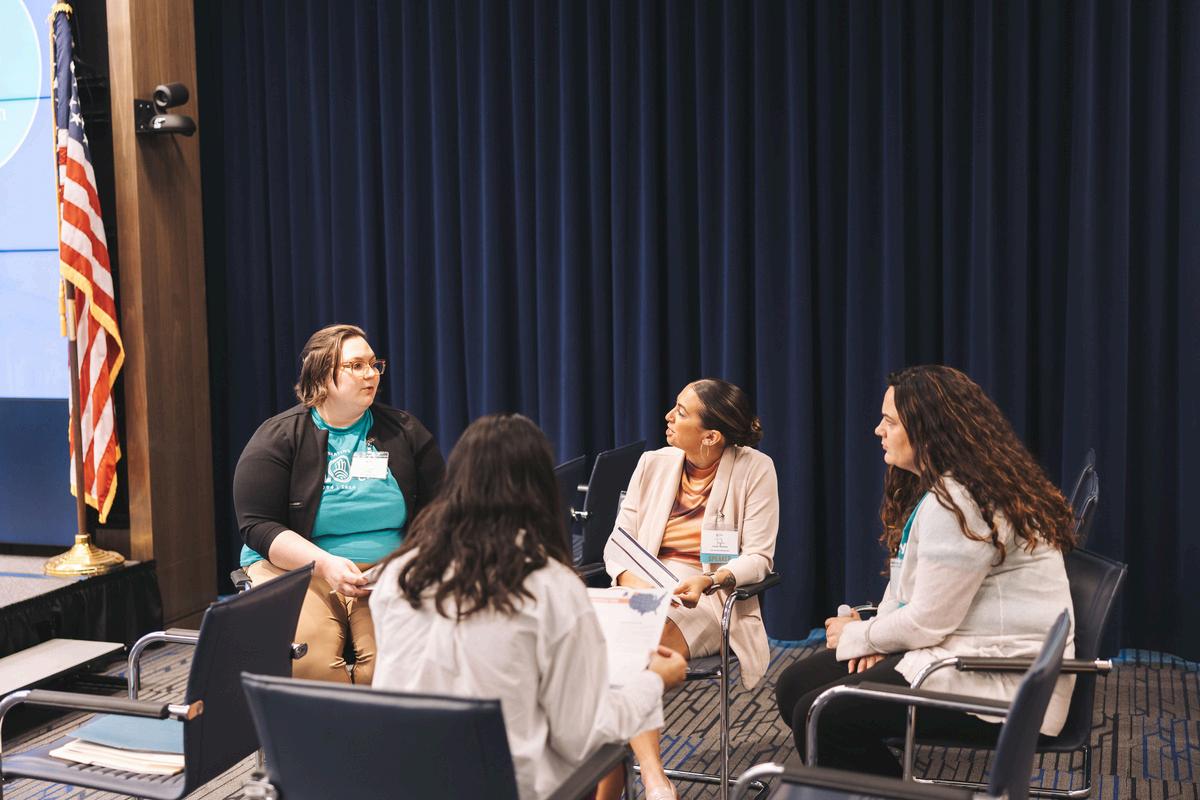


The roundtables included:
“Digital Equity Planning” led by Andy Stutzman, Next Century Cities’ Executive Director and Next Century Cities Board Member, Kari Keefe, also Director of KC Digital Drive
“Federal Issues” led by Ryan Johnston, Senior Policy Counsel for Federal Programs at Next Century Cities;
An overview of Brick By Brick led by Brittany-Rae Gregory Rivers, Communications Director at Next Century Cities;
A review of NCC’s State Broadband One Pagers led by Next Century Cities’ Stacey Baxter, Program Manager, and Corian Zacher, Senior Policy Counsel for State & Local Initiatives; “Insight Into Open Measurement Data Tools” led by Lai Yi Ohlsen, Lead Data Scientist , M-Lab.
“RESEARCH IS THE FOUNDATION FOR IDENTIFYING SOLUTIONS TO SOME OF SOCIETY’S BIGGEST CHALLENGES.”
Brittany-Rae G. Rivers Communications Director
11 Next Century Cities
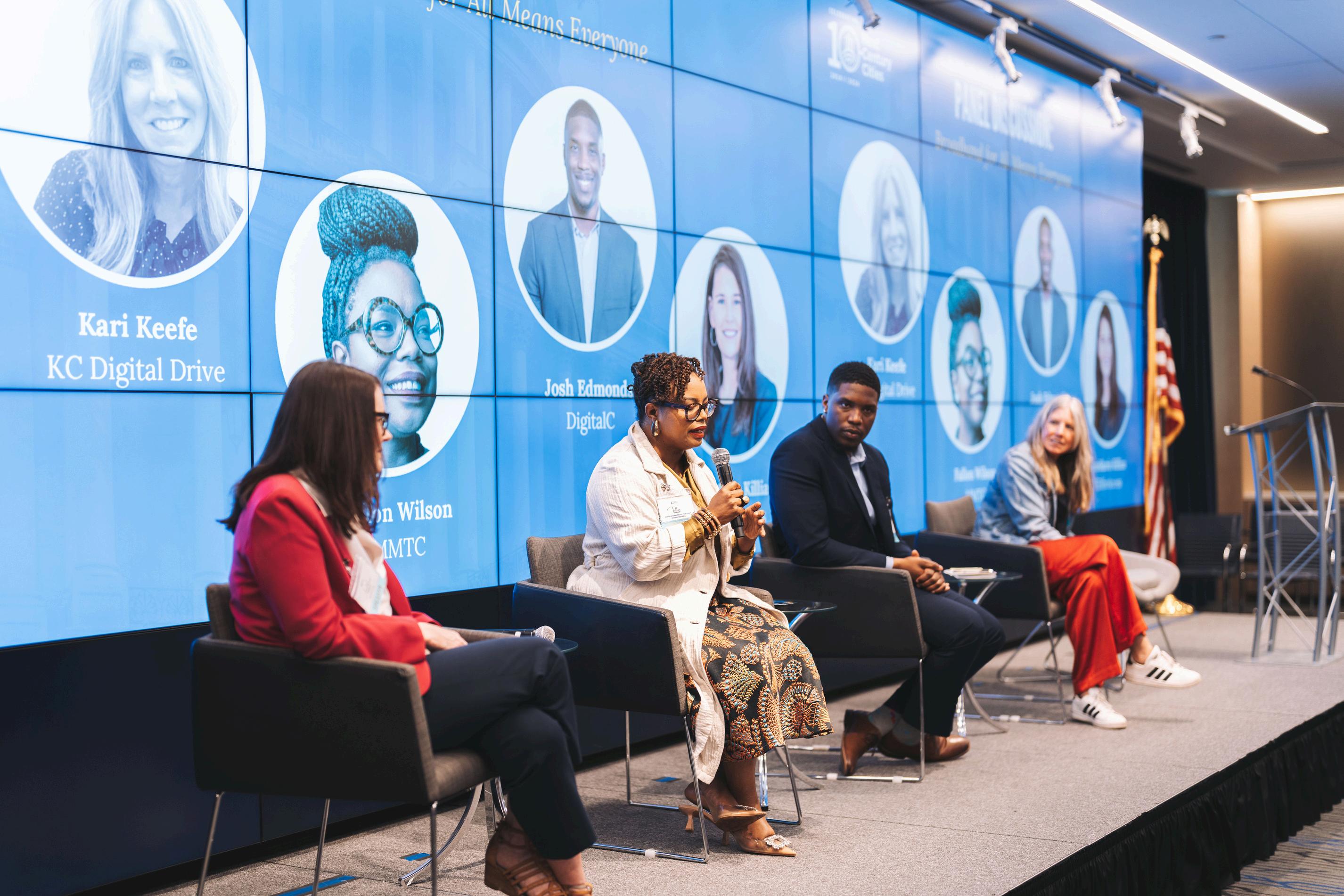

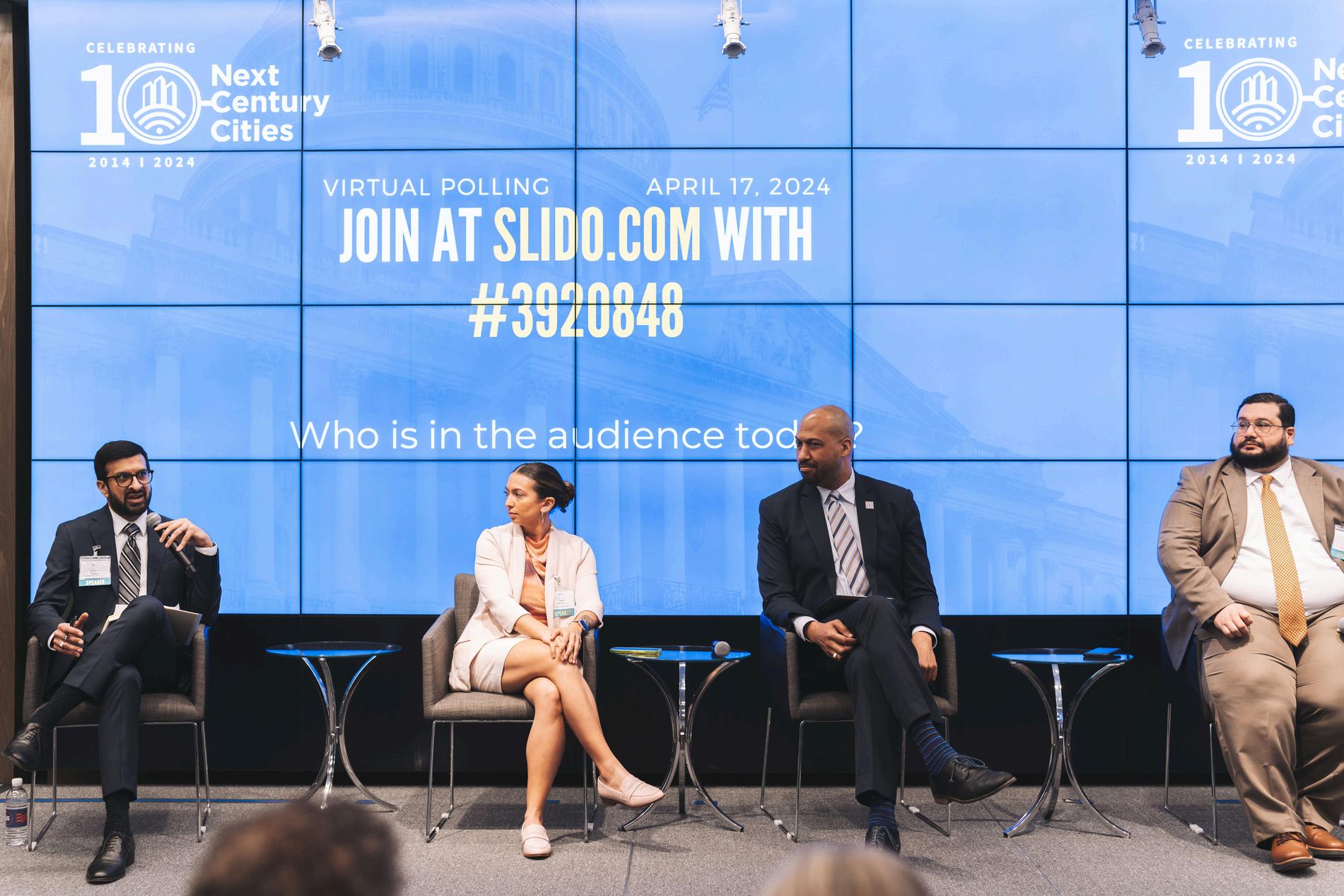
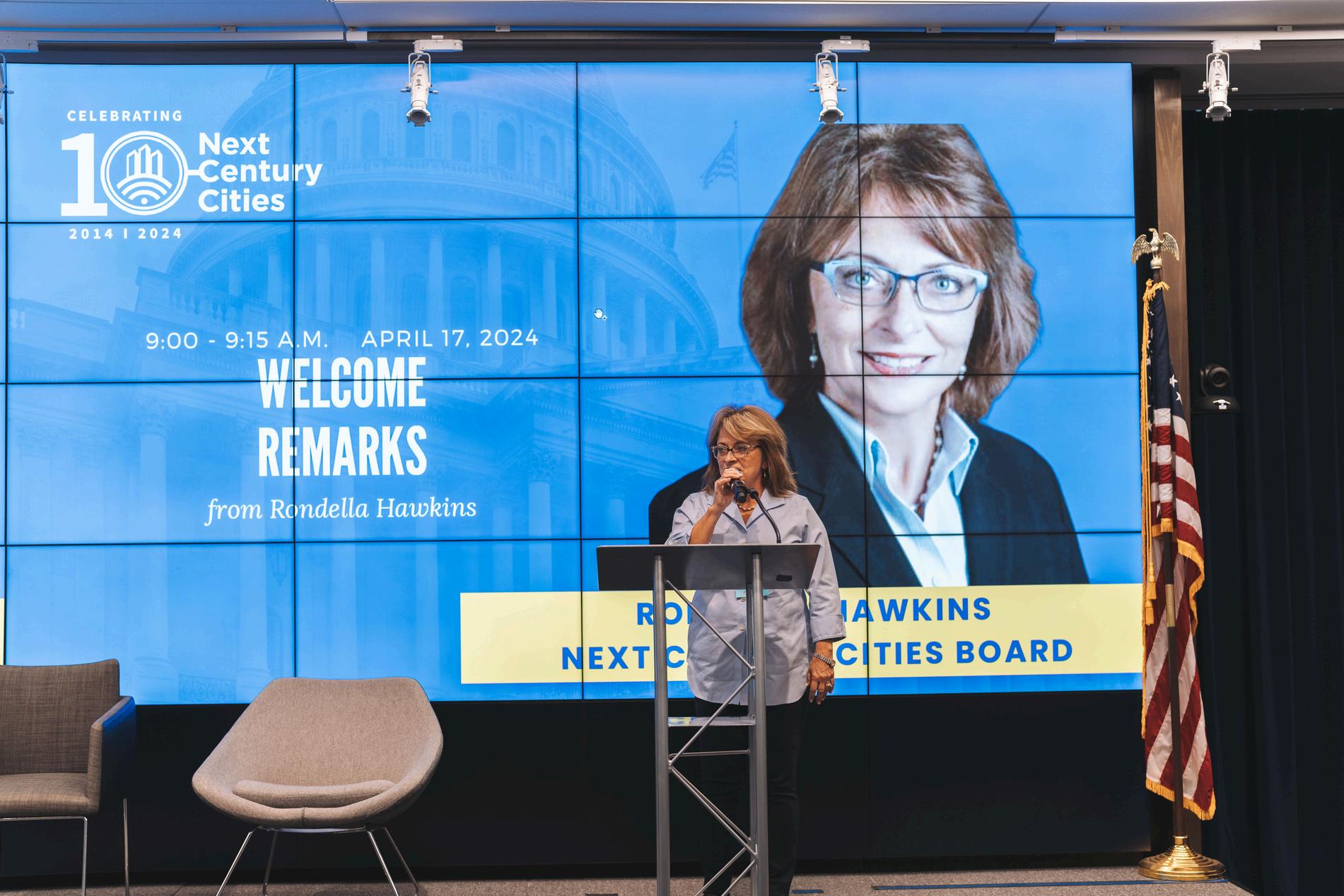

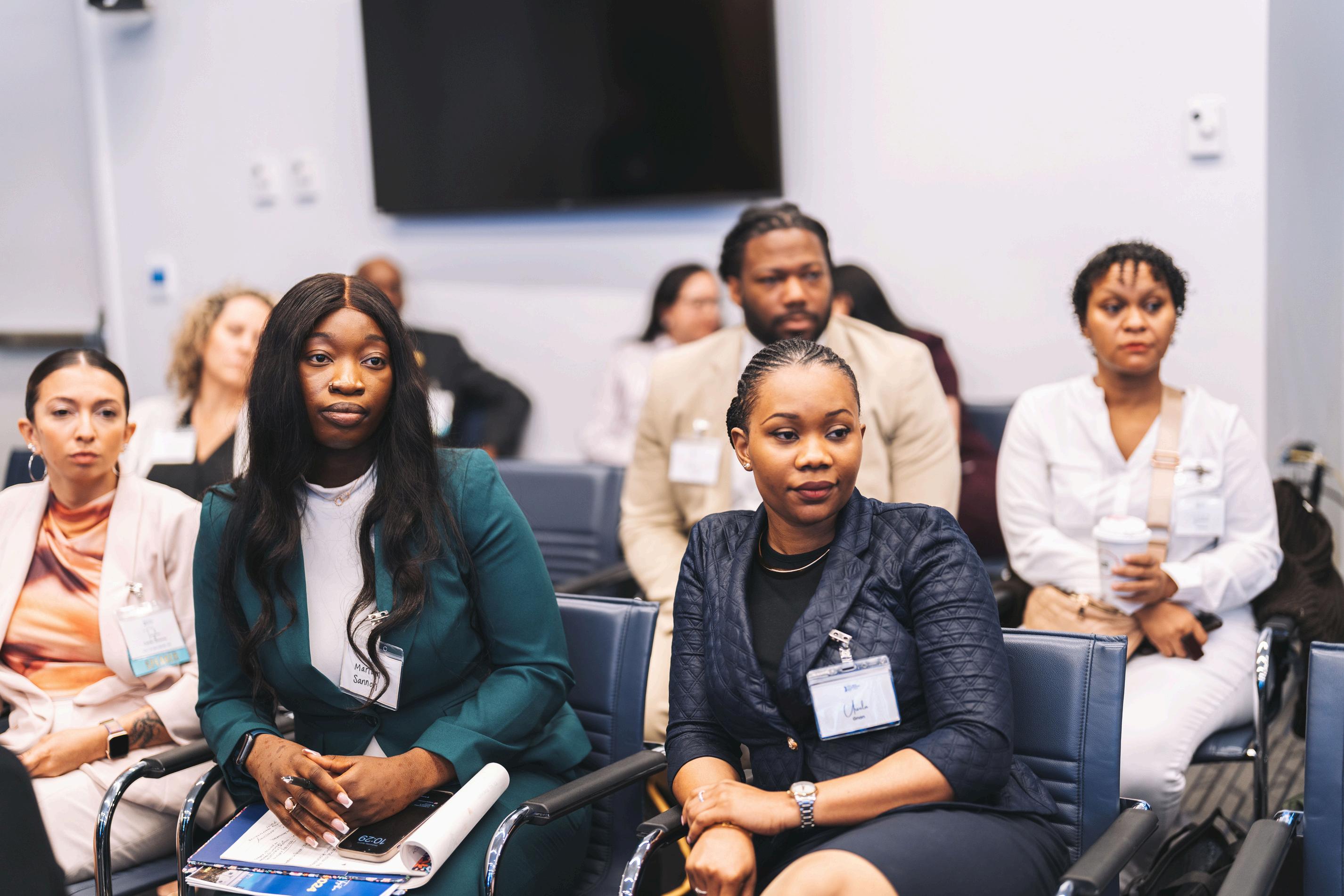
12 Next Century Cities
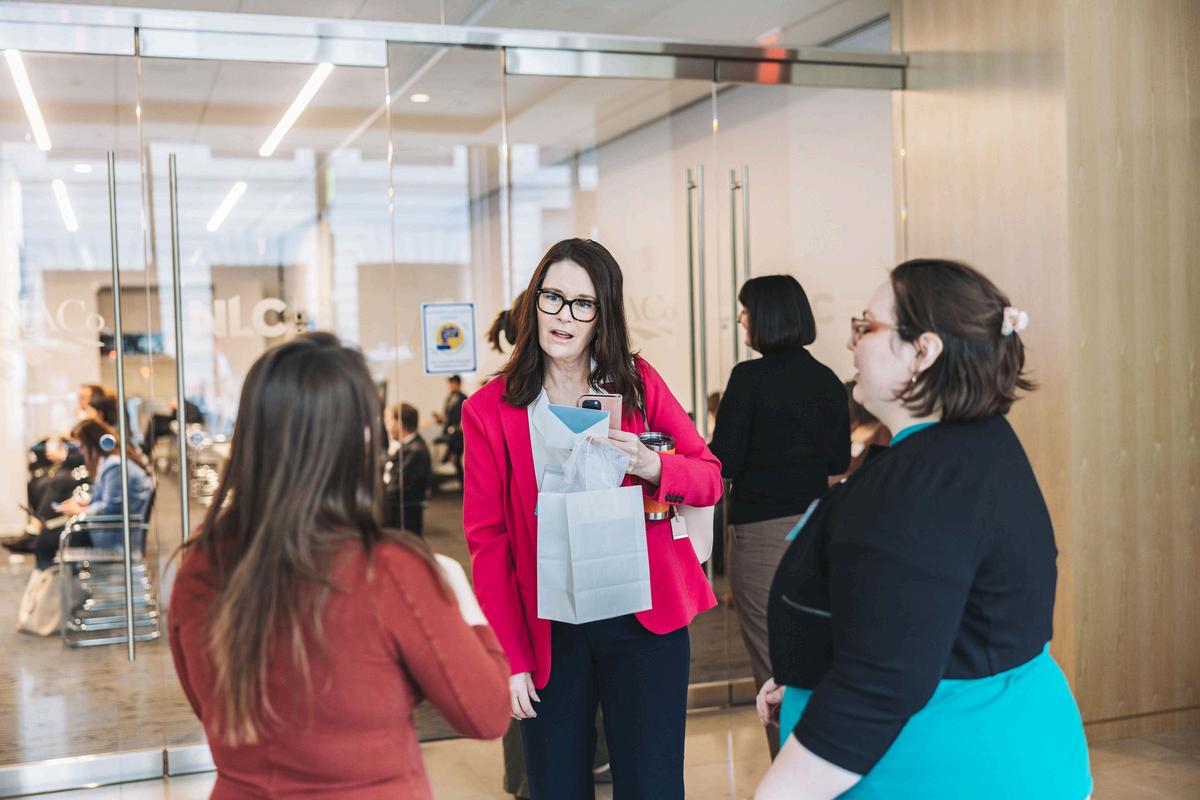

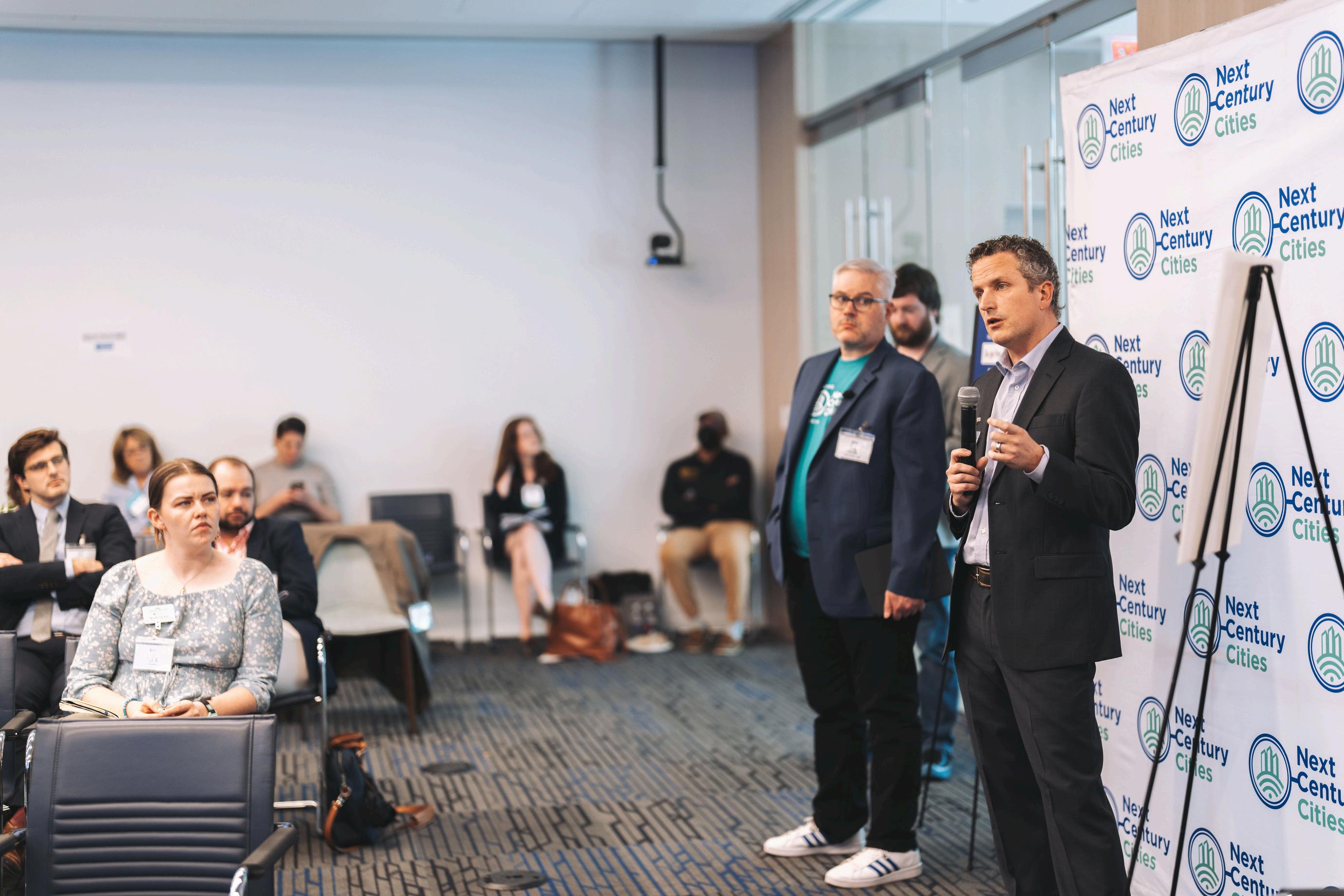
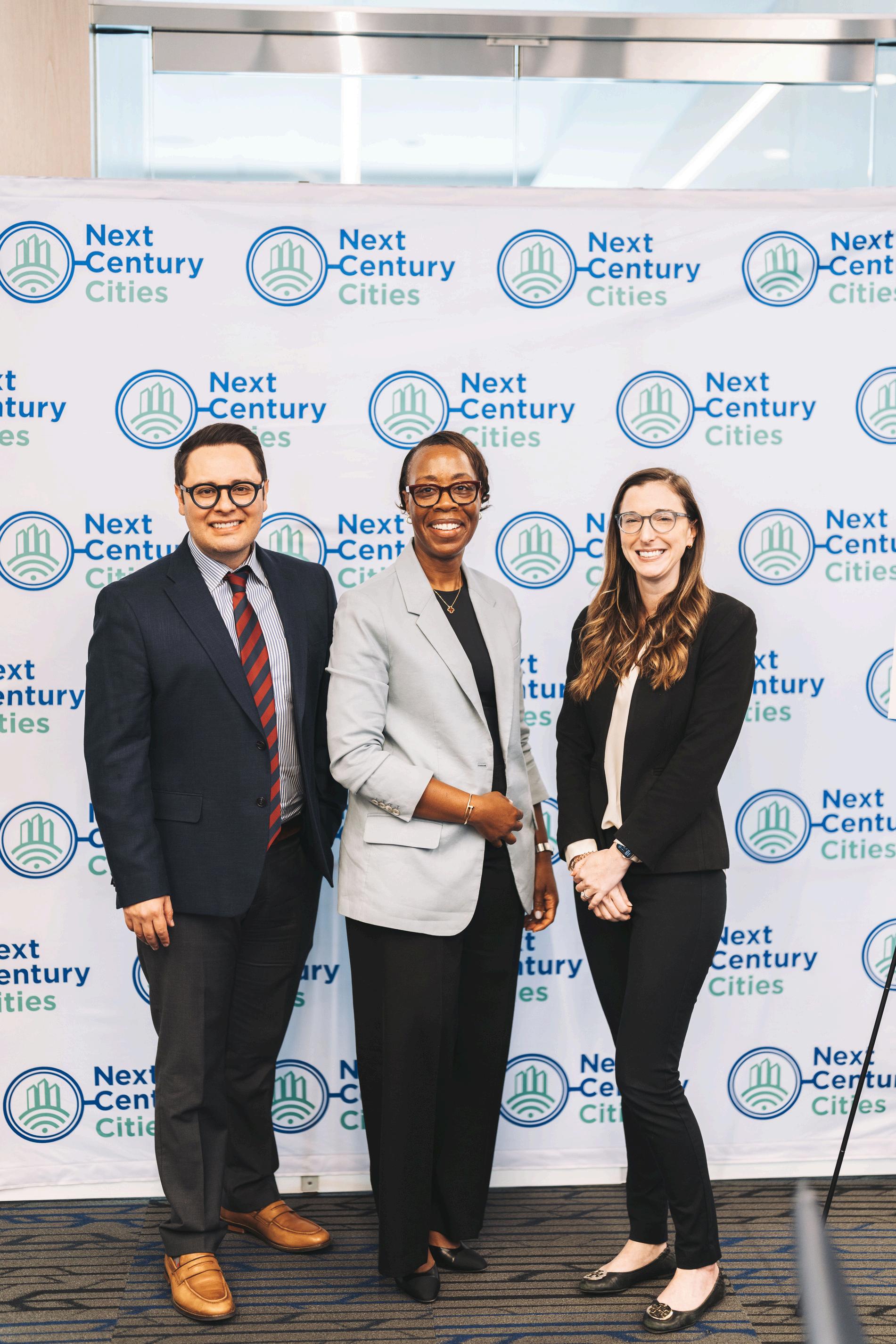

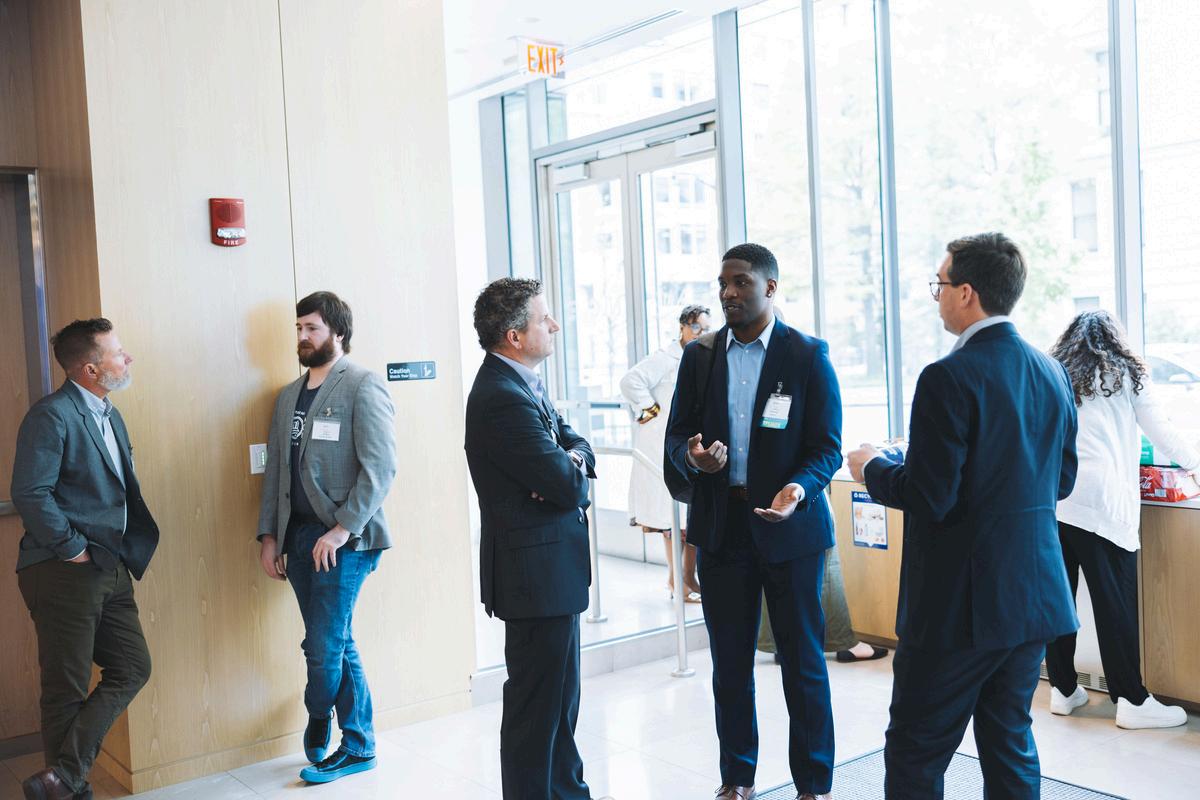
13 Next Century Cities

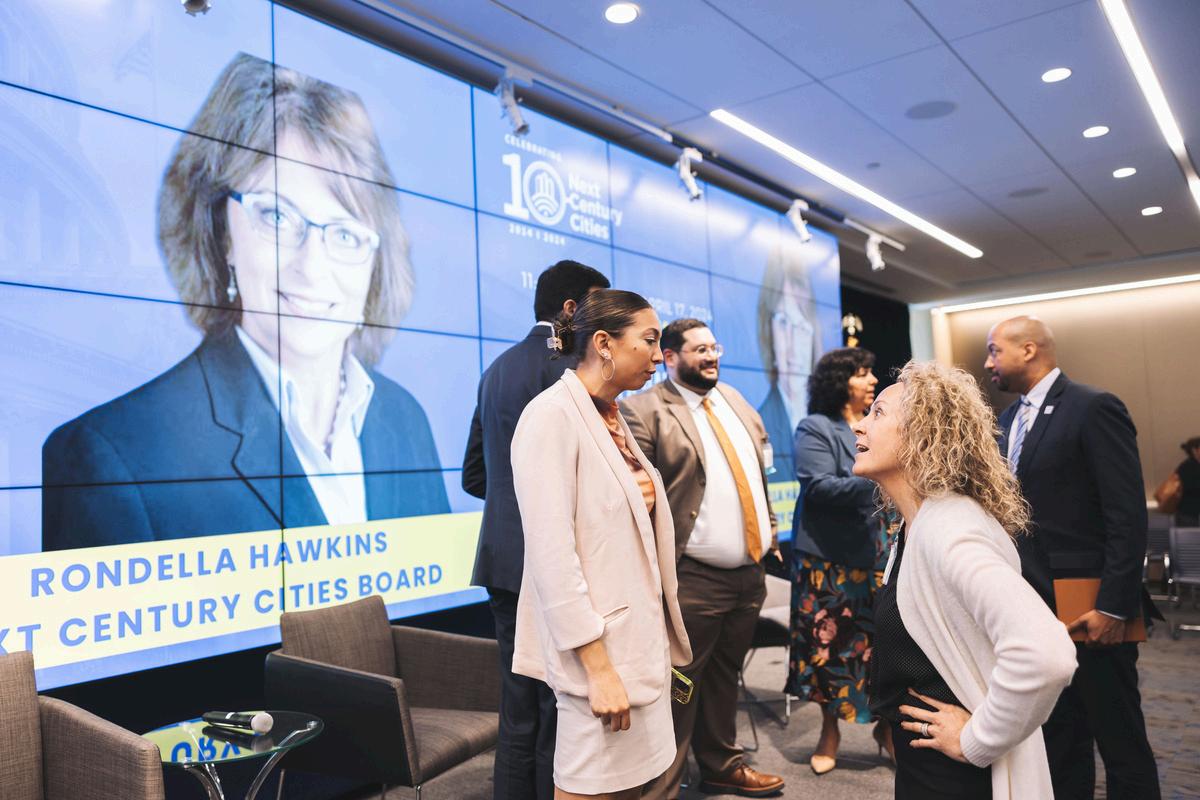

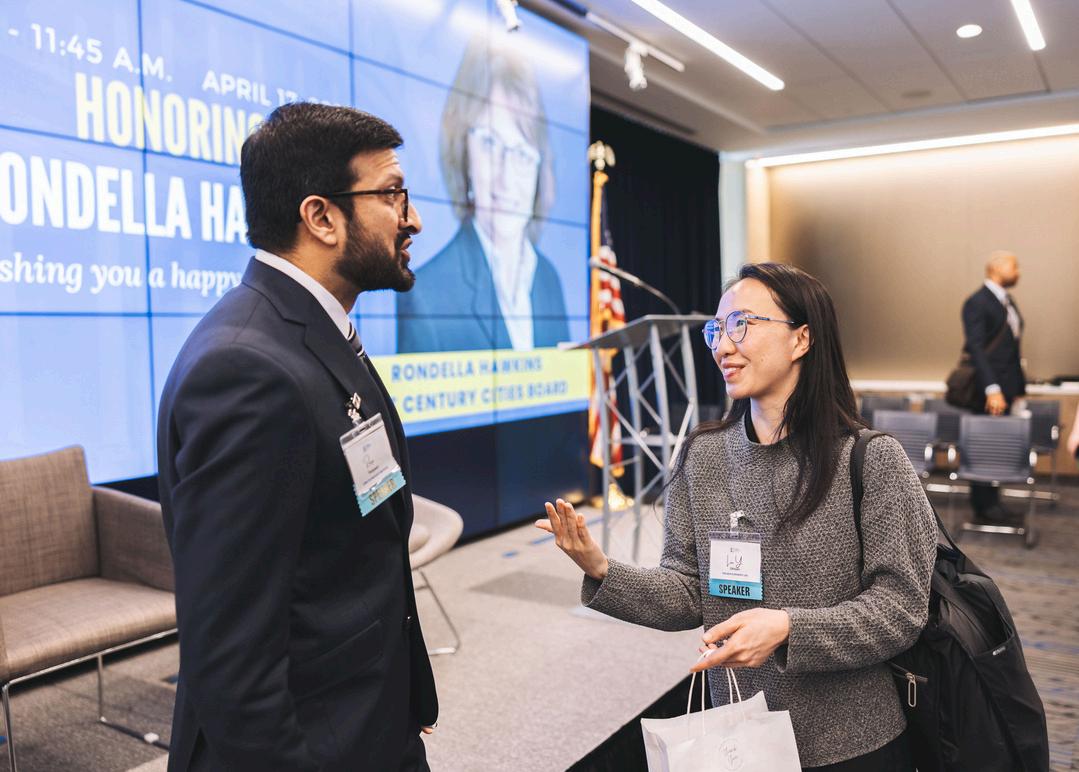
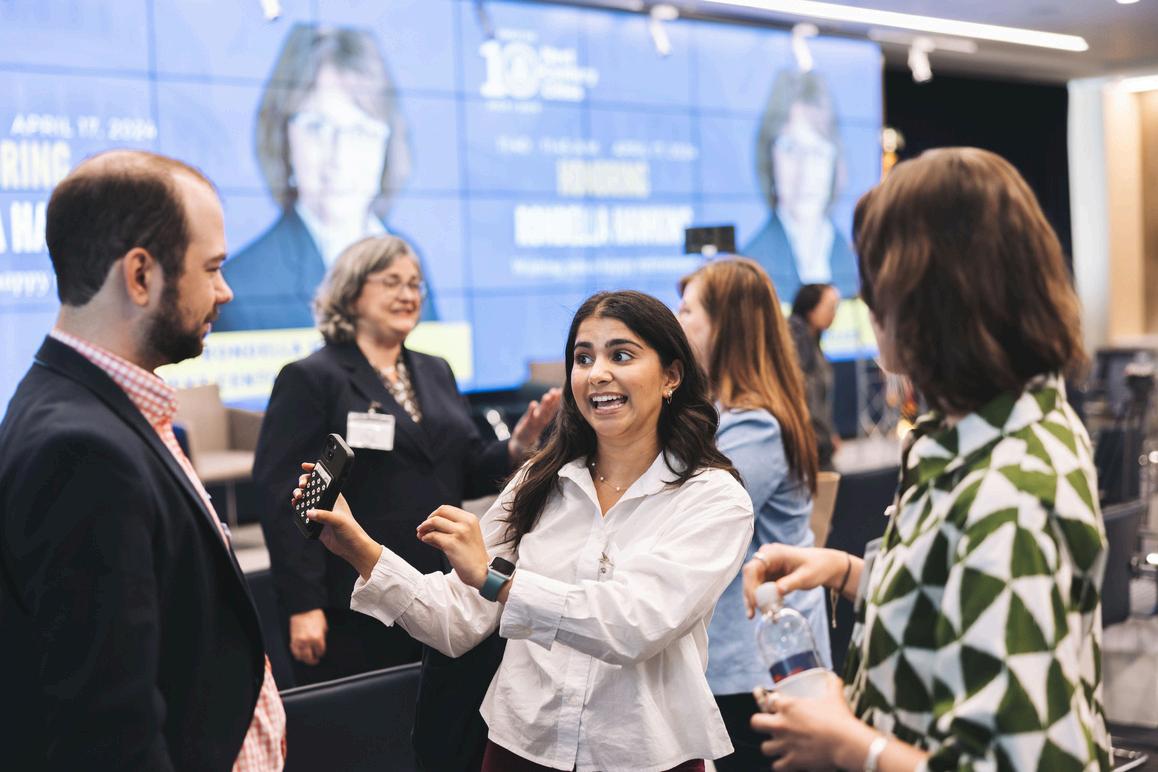
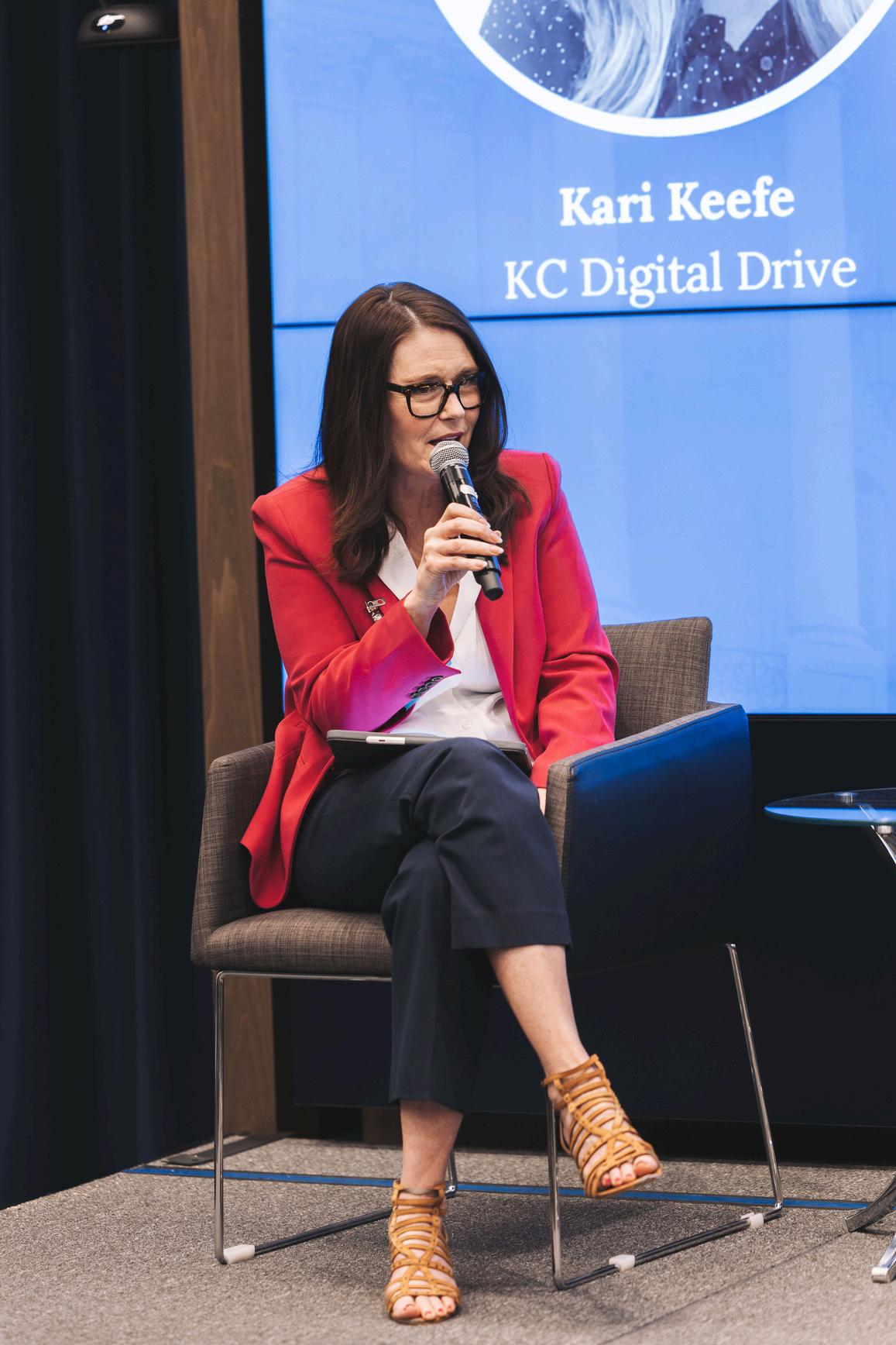
14 Next Century Cities


www.nextcenturycities.org








































